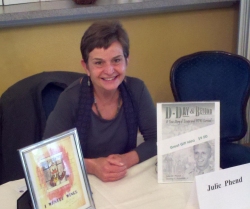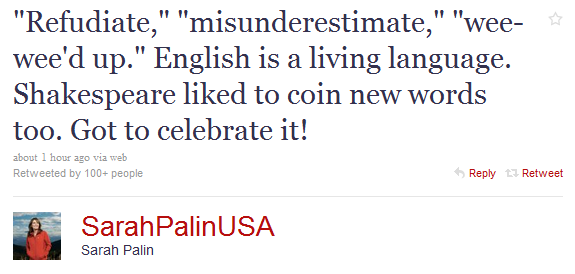 I met Julie Phend at the recent Avalon Writer’s Retreat. She was in my group and I was so impressed because her manuscript was the most polished piece of writing I had ever seen. I found out that Julie is a English teacher and begged her to be a guest blogger and share some common errors that people could easily fix in their own manuscripts.
I met Julie Phend at the recent Avalon Writer’s Retreat. She was in my group and I was so impressed because her manuscript was the most polished piece of writing I had ever seen. I found out that Julie is a English teacher and begged her to be a guest blogger and share some common errors that people could easily fix in their own manuscripts.
Here is what she sent.
Notes from a Grammar Nazi by Julie Phend
Arghh! No writer wants to have her grammar questioned. BUT the truth is that as writers, we are judged as much by our grammar and punctuation as by our witty characters and suspenseful plots. So it makes sense to familiarize ourselves with some rules we’ll use over and over again. Here are a few simple tips to help you avoid common problems.
CAPITALIZATION OF PROPER NOUNS:
Names of Family Members: As writers for children and youth, we will frequently reference moms and dads, grandparents, aunts and uncles. When do you capitalize these words?
Rule: Capitalize family members only when part of a name or used instead of a name. Don’t capitalize when used with a possessive pronoun.
Examples: I wish my mom would listen. I wish Mom would listen.
I bought a gift for Aunt Alice. I bought a gift for my aunt.
Names of School Subjects: Again, as writers for kids, we’ll often reference classes they take.
Rule: School subjects are only capitalized when they are a specific title or when used with a number.
Examples: My math class is boring, but the worst class I ever took was Math 101. Or maybe it was Advanced Algebra.
PUNCTUATING DIALOGUE: Good fiction is filled with snappy dialogue, so let’s be sure the reader (or agent or editor) is not distracted by incorrect punctuation.
Rules: If a quote is interrupted by a dialogue tag, whether you use a period or a comma depends on whether the second part of the quote is a complete sentence. If the second part of the quote is a separate sentence, use a period after the dialogue tag and a capital letter to begin the next sentence.
Example: “I can’t believe I ate the whole thing,” Jenny groaned. “That hamburger weighed a whole pound!”
BUT when a dialogue tag interrupts a sentence, use commas around the tag, and lower case letters when the sentence is completed.
Example: “Don’t run,” Jenny screamed, “or I’ll shoot!”
OTHER DIALOGUE RULES:
Rule: Periods and commas ALWAYS go within quotation marks.
Examples: “Don’t run,” Jenny screamed.
My favorite quotation is “You can run, but you cannot hide.”
Other punctuation marks, such as exclamation points and question marks, go within the quotation marks if they are part of the quote, but NOT if they aren’t part of the quote.
Examples:
Are you familiar with the famous quotation, “You can run, but you cannot hide”?
“Who said that?” Jenny asked. “I can’t remember.”
Rule: If there is a quote within a line of dialogue, the quote goes in single quotation marks.
Example: “A famous person once said, ‘You can run, but you can’t hide,’” Jenny said.
A FEW PESKY COMMA RULES: Modern writing uses fewer commas than were once taught, but commas show a reader where to pause. Without them, a reader struggles to make sense of a line of type. Similarly, unnecessary commas slow the reader down or break a sentence in strange places. Hence, a couple of useful rules.
Rules: Use a comma before ‘but’ and ‘and’ when they are used as conjunctions to join two complete sentences.
Examples: I have often walked down this street, but I never noticed all the flowers.
I often walk down this street, and I always stop to smell the flowers.
Do not use a comma before ‘and’ or ‘but’ when used to join verbs, adjectives, adverbs, or clauses. (In other words, if the second part is not a complete sentence.)
Examples: She loved to run and play.
She loved to run through the meadow and stretch her long legs.
I loved him long but not well.
Never use a comma before the word because.
Example: She often paused to smell the flowers because her mother taught her to appreciate the little things.
A useful rule of thumb: Read the sentence aloud. If you need to pause, you probably need a comma. If what follows the pause is a complete sentence, you need a period instead of a comma.
Example: I couldn’t go home. The police were waiting at my door.
NOT: I couldn’t go home, the police were waiting at my door.
Thank you Julie for sharing your expertise. I know your manuscript will be snatched up, published, and people will be clamoring for more books. You may be interested in her current book, D-Day and Beyond: A True Story of Escape and POW Survival or you may want to check out her webite: http://juliephend.com/and read about her lively WWII and writing presentations for schools, book clubs, and veterans’ organizations.
Talk tomorrow,
Kathy
Filed under: Advice, article, reference, revisions, Writing Tips Tagged: D-Day and Beyond, Grammar Nazi, Guest Blogger, Julie Phend, World War ll



 Last Spring the New York Times reported that more and more grammar vigilantes are showing up on Twitter to police the typos and grammar mistakes that they find on users’ tweets. According to the Times, the tweet police “see themselves as the guardians of an emerging behavior code: Twetiquette,” and some of them go so far as to write algorithms that seek out tweets gone wrong (John Metcalfe,
Last Spring the New York Times reported that more and more grammar vigilantes are showing up on Twitter to police the typos and grammar mistakes that they find on users’ tweets. According to the Times, the tweet police “see themselves as the guardians of an emerging behavior code: Twetiquette,” and some of them go so far as to write algorithms that seek out tweets gone wrong (John Metcalfe, 




All excellent tips and simplified. I LOVE when there are examples. These are very clear :) Thanks, Julie and Kathy!
Thanks for sharing, Julie and Julie. I also love examples. It always makes things clear.
Great tips. I would only add that the names of school subjects that are the names of languages are always capitalized.
You’re right, Rosi. I forgot that one.
Example: I’m taking English, math, science, and French.
Excellent tips, thanks!
Fabulous! While I adore reading and writing at this time in my life, I did not when I was younger and should have been absorbing these key fundamentals of grammar. I thank you for the wonderful and witty rules and examples that will help me from making a fool of myself. With writing at least, I can’t promise anything else.